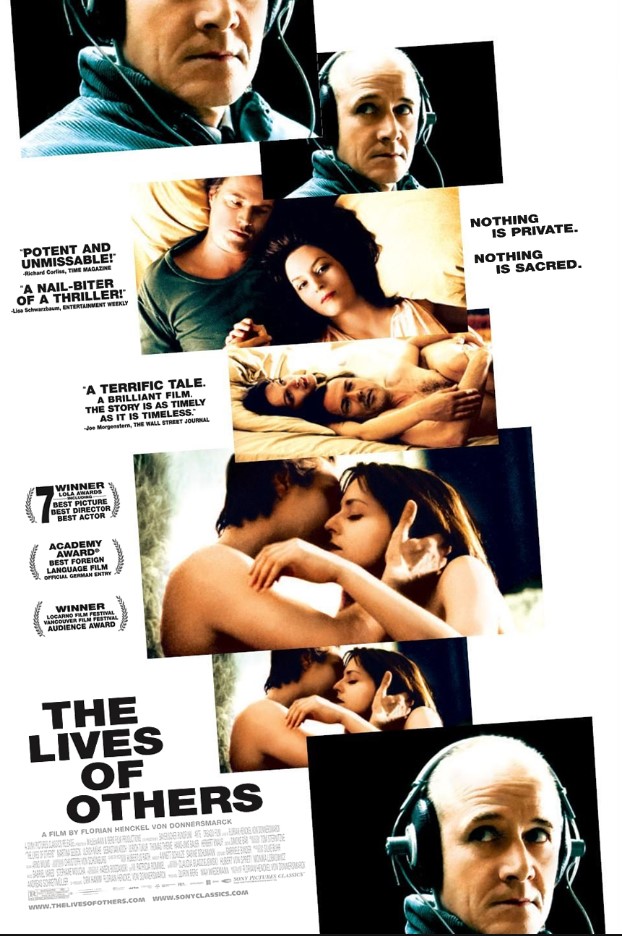The Lives of Others
Sinopsis
Set in 1984, The Lives of Others delves into the life of Gerd Wiesler, a highly skilled Stasi officer tasked with monitoring a famous playwright, Georg Dreyman, and his lover, actress Christa-Maria Sieland. Initially, Wiesler is committed to his duty, believing in the righteousness of his mission.
As Wiesler listens in on their conversations and observes their daily lives, he begins to empathize with them. He discovers the depth of their love, their struggles, and their humanity, which starkly contrasts with his own lonely existence. This growing connection leads him to question the morality of his actions and the regime he serves.
Wiesler’s surveillance takes a personal turn as he starts to intervene subtly to protect the couple from the harsher realities of the Stasi’s power. His superiors, however, remain oblivious to his changing loyalties and growing disillusionment.
The tension escalates as Dreyman and Christa-Maria come under increasing scrutiny, putting their lives and careers at risk. Wiesler’s quiet rebellion becomes a pivotal force, impacting their fate in ways they never realize until much later.
In the end, the film explores the profound impact of surveillance on both the watcher and the watched, revealing the intricate web of human connections and the possibility of redemption amidst a repressive regime.
- Taglines: “Before the Fall of the Berlin Wall, East Germany’s Secret Police Listened to Your Secrets.”
- Genres: Drama, Thriller
- Duration: 137 minutes
- Year: 2006
- Rated: R
- Metascore: 89

Interesting Facts
- The film was Florian Henckel von Donnersmarck’s directorial debut.
- Ulrich Mühe, who played Wiesler, had been under surveillance himself in East Germany.
- The Lives of Others won the Academy Award for Best Foreign Language Film in 2007.
- The movie’s screenplay was inspired by actual Stasi files and real-life events.
What Makes the Film Great?
The Lives of Others is a compelling exploration of human nature under a surveillance state. The film’s nuanced portrayal of its characters, combined with its gripping narrative and emotional depth, makes it a standout in the genre. Its reflection on the power dynamics between the oppressor and the oppressed, and the possibility of change and redemption, resonates deeply with audiences.
Director
Florian Henckel von Donnersmarck directed The Lives of Others with remarkable sensitivity and insight. Known for his later works such as The Tourist, his debut film remains his most acclaimed, showcasing his ability to blend historical context with personal drama effectively.
Cast
- Ulrich Mühe: Gerd Wiesler
- Martina Gedeck: Christa-Maria Sieland
- Sebastian Koch: Georg Dreyman
- Ulrich Tukur: Anton Grubitz
- Thomas Thieme: Bruno Hempf
Soundtrack
The film’s soundtrack, composed by Gabriel Yared and Stéphane Moucha, enhances its emotional and narrative depth. The music subtly underscores the tension and intimacy of the characters’ experiences, adding a haunting quality to the film.
Awards
The Lives of Others received numerous awards, including the Academy Award for Best Foreign Language Film, the BAFTA Award for Best Film Not in the English Language, and seven Deutscher Filmpreis awards. Its critical acclaim underscores its impact and significance in contemporary cinema.
